Celebrating Black Excellence in Tech: Juneteenth Conference & a Tech Apprenticeship Pipeline
Juneteenth Conference & a Tech Apprenticeship Pipeline
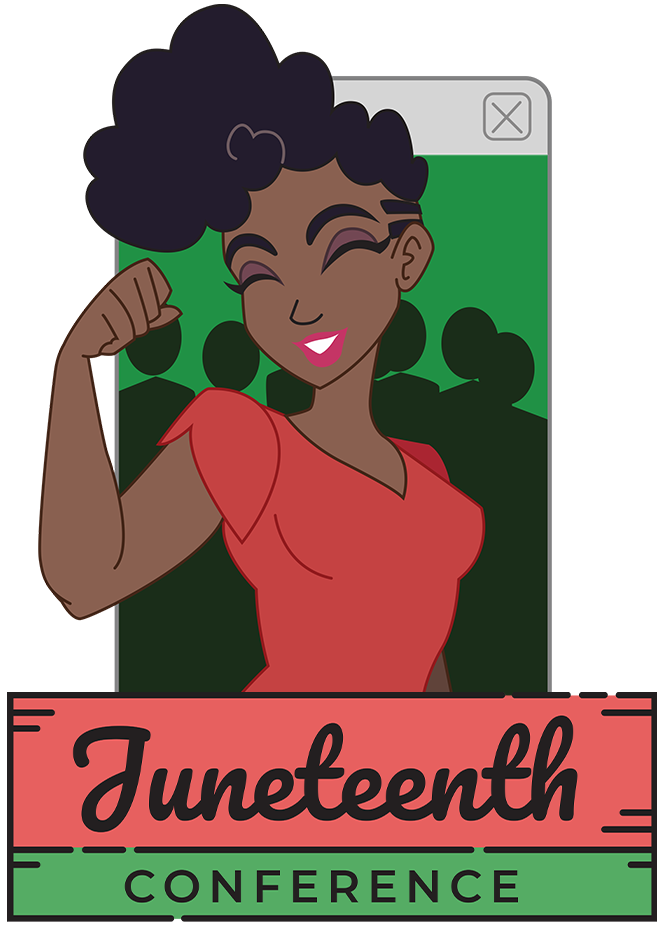
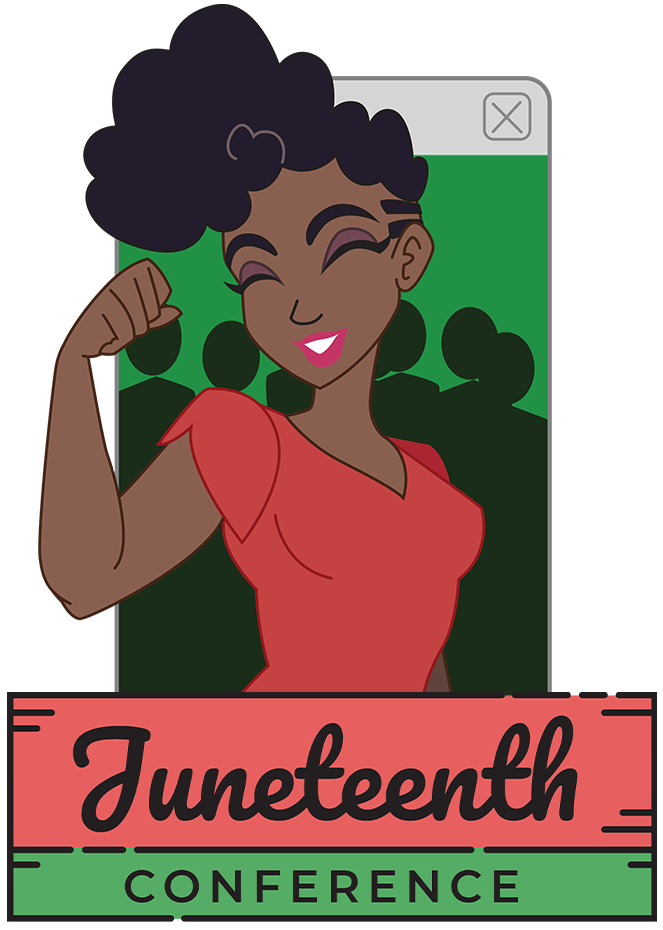
We spoke with Michael Brown who organized the virtual Juneteenth Conference in only 2 weeks in order to showcase Black voices in tech. From there, he plans to support Black communities by launching a tech apprenticeship program for Black high schoolers, which will lead directly into employment opportunities working for Black tech entrepreneurs.
You put together the Juneteenth Conference so quickly. Why did you create it, and how did you get it up and running so fast?
June 3 was my one-year anniversary at Microsoft. I was reflecting on that past year, and taking that time to plan for the upcoming year. At the time, there was so much chaos, between the pandemic, and the protests because of George Floyd. Even though I had a very successful year at Microsoft, I felt like I couldn't fully appreciate it because of everything going on. It felt bad. It just so happened that I had the Juneteenth episode of Black-ish on in the background, where he's talking about how we should celebrate Juneteenth as Black Independence Day. I realized it was coming up only two weeks away!
I thought what I'd do is set up and try to get the ball rolling so that when Juneteenth comes around next year, we would have a conference. The more I thought about it, I decided, it can't hurt to try to do something this year as well. I put a message on Twitter, and it got boosted by a lot of people. Apparently, it struck a chord with a lot of people who wanted something like this.
My logic was, 'Yes, in the middle of all this, Juneteenth is still a celebration,’
I know myself, and I recognize what I've done, what has happened, how far we've come, and I acknowledge that there's more work to do. So I’m preparing for what lies ahead, but also celebrating. That's how it meshed for me. There was a synergy between what I was doing, in terms of celebrating my anniversary, and knowing there's so much to do, not just within my career, but globally, with my personal life, with my personal missions.
So I put out a message and a lot of people responded. June 3rd was when it was conceived and by the evening of the 4th, I had people responding, "I want to volunteer. I want to join in. I want to provide support however I can." It looked like we were going to be able to have the conference. I was taking everyone who expressed interest in supporting it to build the team, because I knew there would be some attrition and some people may drop off. But we got a critical mass of enough people, participating and working together.
To pull this off, I set it up to have several focus areas, but I didn’t assign anything to anyone. You find something you like, go and do it. I created committees and asked committee chairs to direct the work traffic and report back to me, rather than me tracking everything. Then we'd see if anything is missing, or if any shortcomings are visible, I could unblock anything that might be in the way of progress.
That structure gave the team confidence in what they were doing. It allowed people to work on what they chose and contribute however they could, and that's what allowed us to pull it off. We had over 20 speakers and had way more submitted than we were able to support. We started off with it as a one-day conference, but since we had so many speakers, we decided to make it two days with two tracks of speakers. A total of 20-24 hours of talks. At the peak, attendance was over 18,000 people online at one time participating in the conference.
That all happened within two weeks. That's very impressive.
One main point of feedback I received was, "What we did was show that when people say, 'Oh, we can't find Black speakers for our tech conferences...,' we can say, 'Well, I did it in two weeks.’”
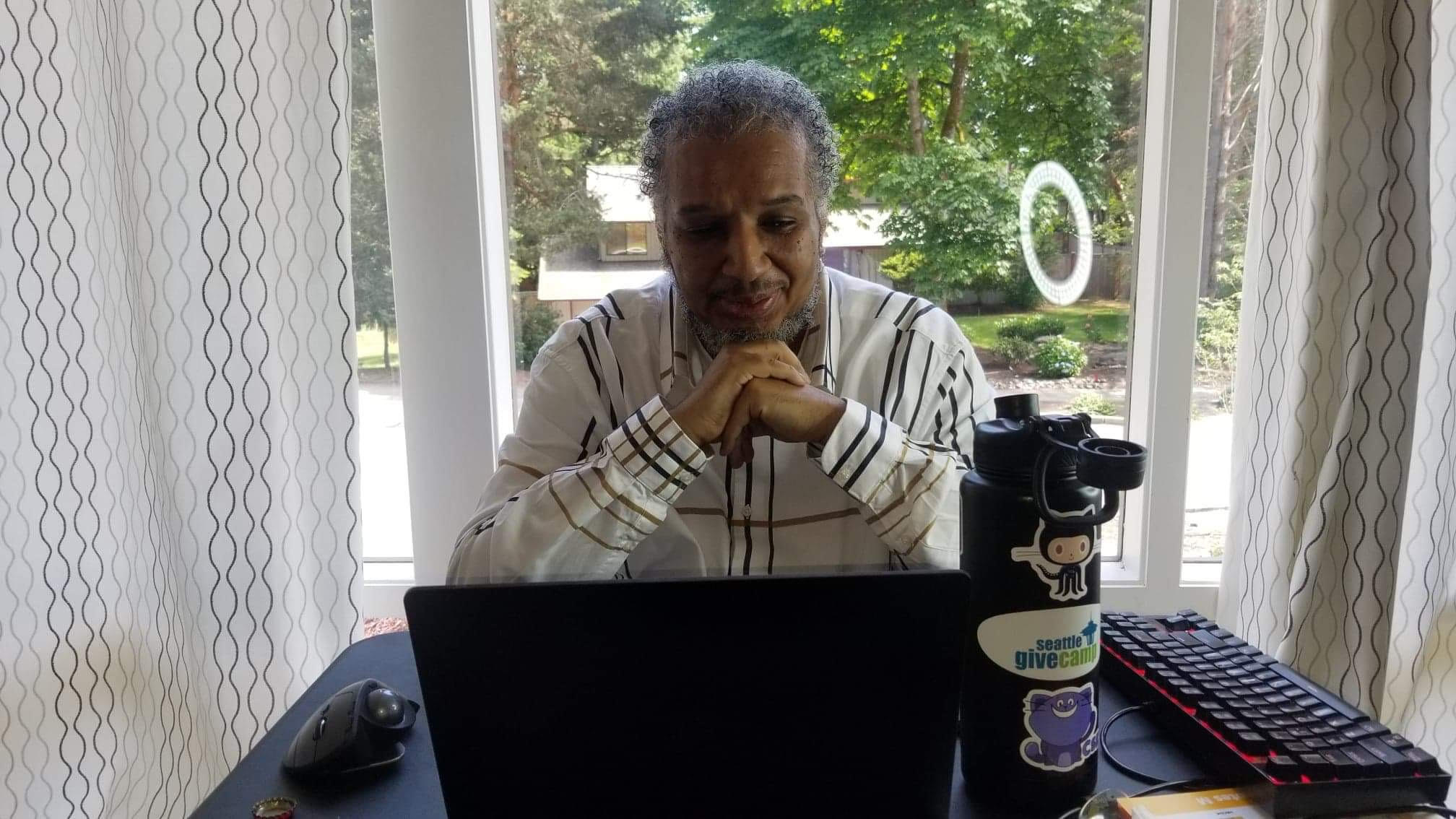
If you want a more diverse speaker panel, you can find it.
It's not a matter of, 'I'm gonna put up a call for papers and hope that people reply.’ People need to be invited and told, 'We want you', rather than a general request.
How did your network and your connections within the tech industry help you organize this?
Honestly, I have a very small network, in terms of Twitter. I didn't do any ad promotions. I put it out there, and a number of key people who did have big networks boosted it. That's how I got the response. I spelled out, 'This is what we want to do.’ I made sure I had a landing page which could capture people's interest, either to be speakers, volunteers, or help build the platform. Had I not captured all the people who wanted to be involved, it would not have been as successful. Without recording their names and their information, I wouldn’t have been able to contact them. A number of people sent me direct messages @ replying me and I put on there, 'If you want to be involved, click this link.’
How did your relationship with Microsoft play a role?
One factor is that the organization I work with within Microsoft used to be Developer Relations. There are people who were community organizers, who did events like this, and who are really in tune with the process. Someone said, “Normally, to pull off something like this will take a year, but, I'll support you however I can.” After we did it, neither of us could believe it. I didn't know how we would do this, but I knew it was going to happen. I think I could now step totally away from it, and this event would still happen, because we hit critical mass and had enough people handling the details and minutiae of it.
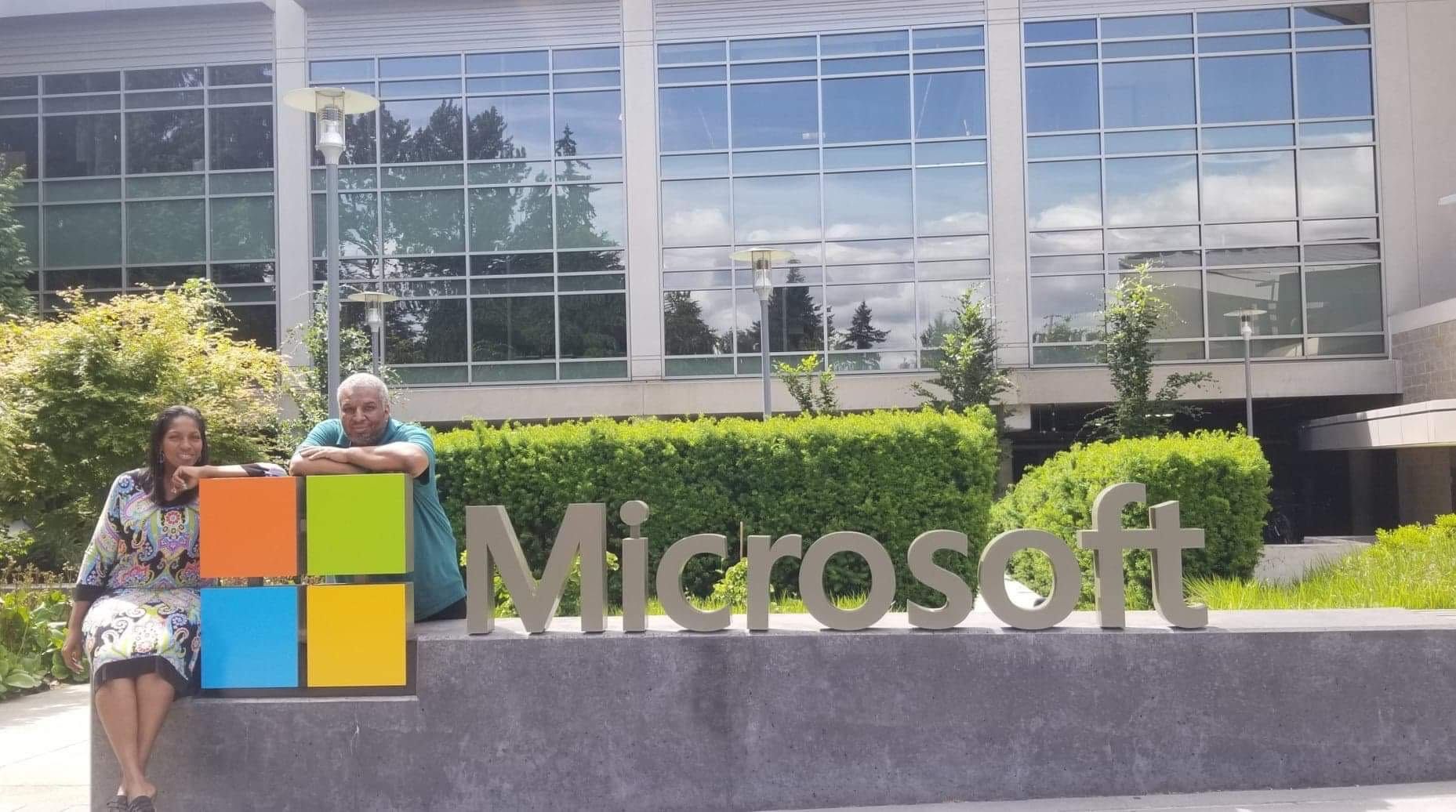
Amazing! Were there significant challenges you noticed with it being a virtual conference?
This was a huge event. I don't think we could've pulled off an in-person conference in that short amount of time. There were people involved who had experience managing and launching conferences. Initially, I thought we'd have to build a platform better to do it, or cobble something together, but we had someone on our team who built a platform for it. By the end of the first day after my tweet, he gave me a walkthrough of the platform he had built. That meant we could devote our effort to the other pieces, like getting speakers and so forth.
What kind of speakers were you hoping to get? What kind of audience did you hope to reach?
Our goal was to highlight Black people in technology. I wanted to put the spotlight on the great talent, these incredible people with deep technical excellence within the Black tech community. When we started, we had no idea how big it would be.
We had people talking about accounting for bias in AI. We had people talking about accessibility, how to program for accessibility and make that a part of the software life cycle. We have people talking about imposter syndrome, and how it is used as a superpower. It wasn't all tech, but it had a lot of technical depth. There was also career management: how to navigate a career as a Black person in technology, or as a Black person in corporate America, period?
We had many high quality talks.... Some we weren't able to feature because we ran out of space. The goal was to bring the community together and celebrate excellence in technology. I think we definitely accomplished that mission.
What led you to want to organize your community?
I've had my headspace in community building. I come from the inner city of Chicago, a single parent household with a modest income. My mom was a grocery store clerk from the time she was in high school until about when I was in high school. My sister and I were raised on that income. I moved forward in my life story through some scholarships and other programs. The inner city schools-and this is still true today-are underfunded. I was talking with people recently about the fact that Houston ISD is making some kids go to what they call "remote learning centers", because they can't provide everyone with laptops. How do they decide who gets one and who doesn't?
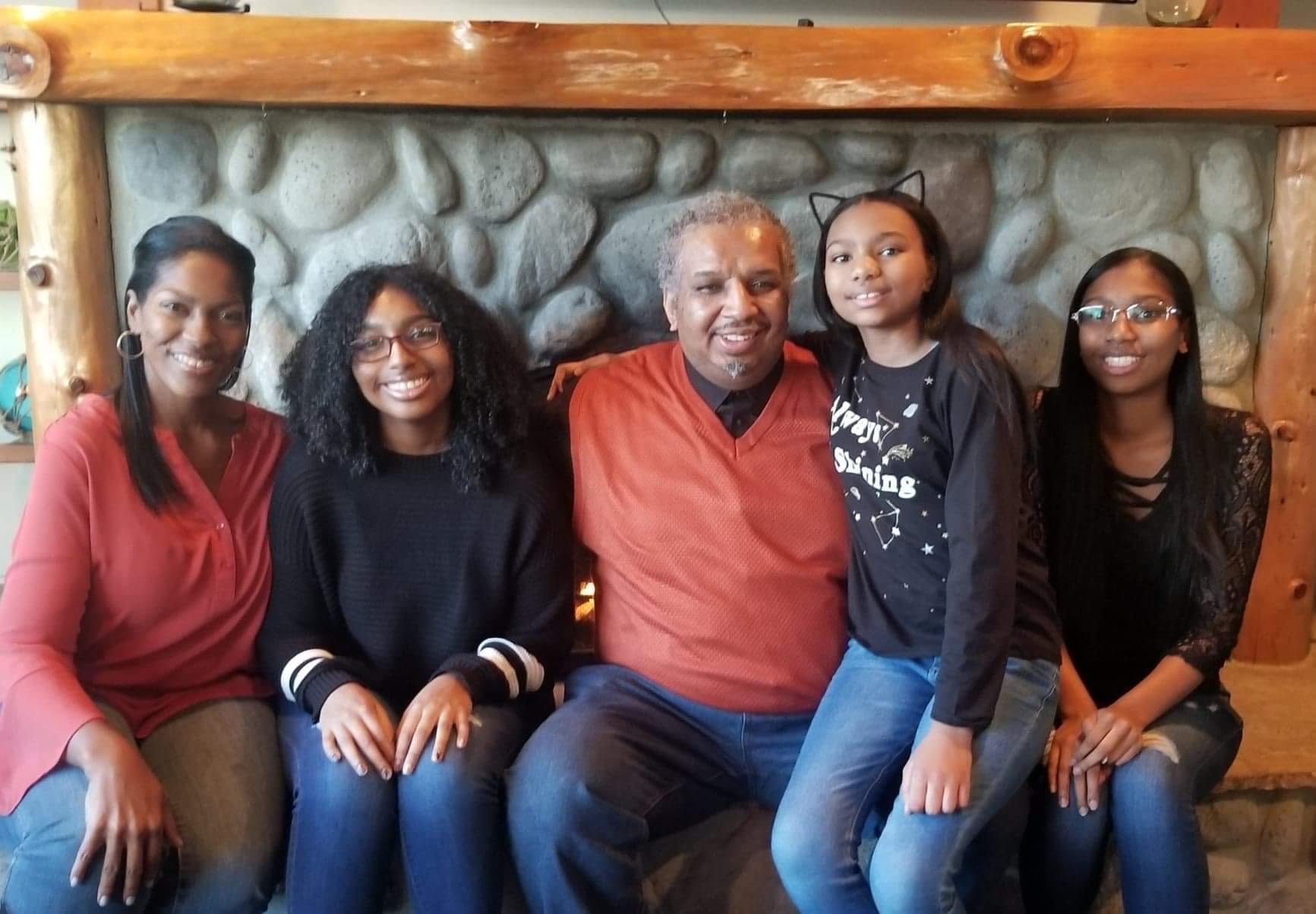
Meanwhile, in the suburbs, we live in Bellevue where, even before the pandemic hit, my daughters had received their own laptops to take home and use, and the school was already using things like OneNote to hand out and turn in assignments. We were already set up, so when it became, 'We're not going to be learning in person. We're doing remote learning.' It was already in place. There was no work to do. We think, 'This should happen at every school.’ The reality is, 'There are about 50,000 students in Houston who won't have a laptop, who won't have the technology.' That comes out to around-you can actually prove requisition- a good laptop for studying at like $200 apiece in that type of volume. And that comes out to around 1-2 million dollars? He's telling me Houston can't come up with $2 million in their budget? That's where my mind has been since college. I want to make sure the next kid like me gets the same type of opportunities I had, so they can realize their potential.
With my head being in this space, the Juneteenth Conference was pretty much a pivot, or what's also called a minimal viable product. I follow the Lean Startup approach, where the question is: 'What will get people's attention and get them involved?' And boom, that was it. We were able to fundraise around $13,000 from attendees, and that's what bootstrapped us. Then we were able to do a little more. We had a generous donor who offered to match what we raised, so we doubled our treasury. That person put us in touch with Pia from Open Collective. That's been a godsend, because I wanted to make sure that whatever we did was out in the open, with public accountability. That's a big benefit of the platform. Every penny that comes in or goes out, can be traced. Nothing is hidden. There are people who scam by saying, 'I want to create an organization that'll benefit Black people.' They get millions of dollars donated. Then when asked, ‘how did you help?' It's, 'Well, I shot too big and couldn’t do it.' ‘Okay, so you shot too big... Where did the money go?' This happens time and time again. They start organizations, 'It will fund this, it'll fund that.’ They get millions of dollars and people love them. They use this struggle, this whole movement, as a 'Get Rich Quick' scheme, right? I'm not doing this to get paid-I have a job. I'm doing this because I believe in it. I'm not taking a salary from the organization, because I don't need it. The organization needs it.
If everything went well with fundraising, what is your trajectory?
The first program I want to do is what I call a tech apprenticeship. We’ll work with Black students in underfunded schools to provide them with training and technology. Not only programming, there are numerous fields under the technology umbrella, like project management, graphic design... there are so many avenues into this world. When I was a kid, I loved everything about technology. I was fascinated by it. From the first time I used a computer, I knew that was what I wanted to do. But no one said 'This can be your career!' Some people want to be a doctor, some people want to be a lawyer. If you want to be a computer programmer, you can make that your career. I think we fall short of promoting it to Black students. People say, 'it's a pipeline issue.' I believe the pipeline is there. It's not tapped into, and I would love to increase the volume, get people excited about it.
The plan is to offer apprenticeships, where they study technology and we give them a monthly stipend, so they don't have to go to school, then go to a part-time job after school and come home and study, and on top of that, try and learn technology. The stipend would cut out the after-school job: Your after-school job is to study technology.
That's a game changer.
Some people say, 'That's just some pocket change’. No, sometimes these kids are taking the extra job to help support their family. The extra financial boost transforms their lives, because we're talking about $500 a month for each participant. Their family will be able to make that a part of their budget while they're in the program.
It makes a huge difference.
The plan is to start the program with them from their first year of high school, it would be a four- year program. The goal is to have a guaranteed job for them at the end of the program. They can still go to college. We wouldn't say, 'Don't go to college' because you have a job. We want them to think about the way higher education is transforming right now. I think that by providing them this pathway to a career out of high school, and the means to.... After four years of hands on programming and learning skills- we think they’d be employable, and at a fair market rate.
It's not a boot camp. I understand the point of boot camps, and they are usually for profit. I was working with a young lady who was considering moving into a tech career. She was talking with a boot camp that was going to cost around $12,000 and had a job placement program as well. I asked her, “Do they guarantee a job for you?” I appreciate the income-sharing agreements that boot camps do. They invest in you, but expect a return on their investment. They’re not going to admit you unless they think you can be successful.
Our goal is to not charge anything, and invest in you, period, We hope that by doing this, we enrich the community. One of our speakers, Danny Thompson, spoke about a community near where he lives, where the median household income is $18,000. If you can get a technology job, which starts at $60,000, you're making 3-4X the median, right? When you do that with 10 people, you've changed the neighborhood. When you do that with 20 people, and they teach the next generation, you're transforming a community, a city.
That transformation also changes property values. Property values go up, and property taxes increase, and all of a sudden, the school has more funding.
In the meantime, what will you do to keep the momentum you have going? Are you going to offer workshops? Do you have activities planned or are you working on the next conference?
We already did our second conference, The Hidden Gems Conference, during the week of August 22, which was Katherine Johnson’s birthday. That had good results. We wanted to celebrate and highlight Black women in technology.
Our next step is: I've been communicating with Microsoft Philanthropies and we’ve launched a Black Tech Accelerator program. Now we're applying for funding. It's for organizations like mine that are looking to provide career training and STEM career promotion for Black people.
We're also hosting workshops. We're doing a hands-on workshop to build your first IoT solution. We’ll take you from Step One of writing code for your hardware device, connecting it to the cloud, receiving and showing the data, and even controlling back to the device from the cloud. With that, we're looking to do a subscription box where people can subscribe to and receive hands-on trainings and tutorials. Part of the subscription is that you can attend the workshops virtually and get guided support in completing it. The subscriptions will fund the other missions and programs that we're doing. Our hope for the 2021 fiscal year is to have the funds for 10 apprentices starting in June 2021, to be in the program with their monthly stipend and with a tech package to help them.
Great! So who can get involved and how?
We are currently in the process of forming our board, and we will hopefully have that in place by the end of this year. Soon, we’ll announce the programs we're launching, including: the tech apprenticeship, the conjoined tech package grant, and we're also looking to do a Black tech business incubator- where, in the long run, we will have people from our apprenticeships work in the tech businesses that we're incubating. It's a double boost: hands-on work within bringing a real-world solution to life. Businesses we're supporting will also benefit from the workers who are ready to go, without having to look and find tech employees themselves.
What else should the world know about the Juneteenth Conference?
We're already planning for next year. We hope to be able to have an in-person event. We look to make it as much of a celebration as possible, and make it big and make it meaningful.
This interview has been edited and condensed for clarity.
You can watch the recorded talks from Juneteenth Conference & Hidden Gems Conference on their Youtube Channel

